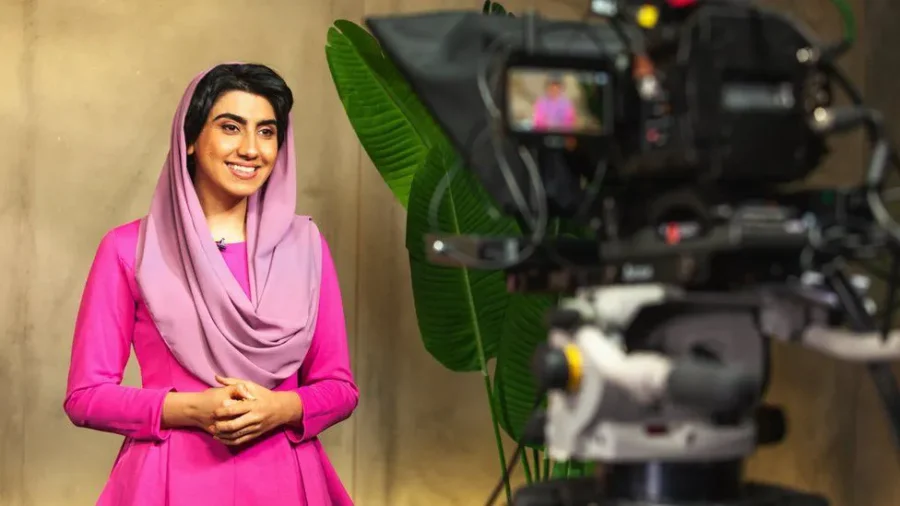A BBC programme for children barred from schools in Afghanistan has been described as a “learning lifeline” by the United Nations. The show is being used in secret school lessons, the BBC has learned. Its name, Dars, means lesson in Afghanistan’s official languages of Dari and Pashto. The ruling Taliban prohibits girls from receiving secondary or higher education.
On the day she was told she could no longer come to work at school, Afsana, who is a teacher, lost her purpose in life. The 28-year-old worked at a secondary school for girls in eastern Afghanistan. Now, like some other former teachers in the country, she has set up a secret school. Twenty-five students, all girls, between the ages of 12 and 18, gather in her basement. The only tools she has are a whiteboard, a phone and the BBC Dars programme.
With no signal in her makeshift classroom, Afsana downloads short videos of the show to play to the students, who then write her a summary of what they have seen. “My students watch with interest and passion,” she says. “Their hopes have been raised and they are still dreaming for the future.”
The show, which has just launched its second series on TV, online and radio, is hosted by BBC female journalists who themselves fled Kabul more than two years ago, after the Taliban’s return to power. Any form of learning “provides safety hope and opportunity”, says Yasmine Sherif, the executive director of Education Cannot Wait, the United Nations global fund for the education of children in crisis. “Community-based education or remote learning, such as the BBC’s Dars programme, offers them the learning lifeline which they so desperately need,” she adds.
Mariam Aman is a producer on the show, adapting existing BBC teaching content, covering maths, history, science and ICTI am from Afghanistan too and work as a producer on the show, which covers subjects such as maths, history, science, and information and communications technology (ICT).
While it keeps students in touch with their education, it is not a replacement for school. Until girls and women are allowed back into the classroom their future in Afghanistan is bleak.
The Taliban government says the bar on girls’ education in Afghanistan is temporary and once a curriculum in line with Islamic and Afghan traditions is put in place, girls will be able to return to the classroom. However, this has not satisfied many Afghan observers who say hopes of schools being reopened have been dented by the increasing restrictions imposed on women.
“This country has become a graveyard for our hopes,” says 21-year-old Razia from Nangarhar province in eastern Afghanistan. Her life completely changed when she was stopped from going to classes in the final year of her journalism degree.
“Afghanistan is a prison we are trying to escape,” she explains. Razia makes her younger siblings watch the programme, including her 12-year-old sister who dreams of becoming a doctor. But life is tough in Afghanistan for young women. “We cry every day. We have totally lost our self-confidence. I even feel resentful towards every man in the country,” Razia admits.










